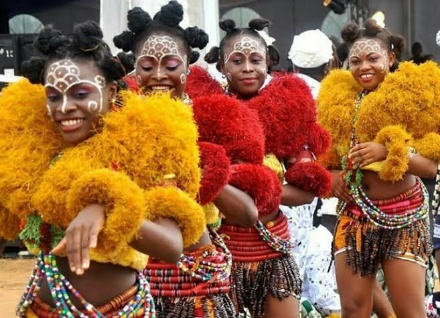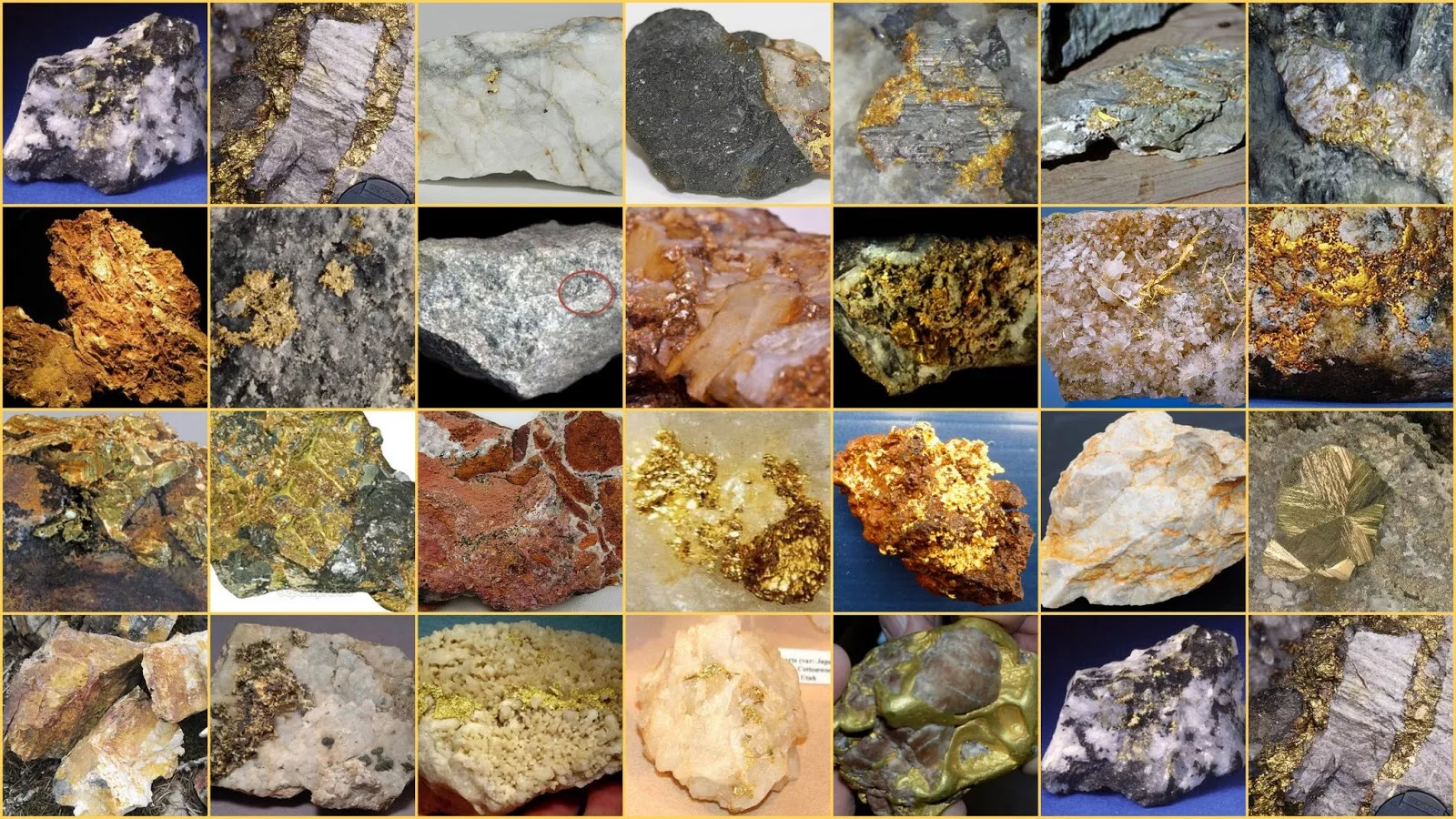Top 10 Most Cleanest Tribes in Nigeria (2026)
Nigeria is a diverse country with over 250 ethnic groups, each with its own unique culture and traditions. Some of these tribes are known for their cleanliness, both in terms of personal hygiene and environmental sanitation.

Ibibio-Efik is the most neatest tribe in Nigeria
In this blog post, we will take a look at the top 10 cleanest tribes in Nigeria. We will discuss their cultural practices that contribute to cleanliness, as well as their personal hygiene habits and environmental sanitation efforts.
Cleanliness is important for a number of reasons. It helps to prevent the spread of disease, improve overall health and well-being, and create a more pleasant environment for everyone. In Nigeria, cleanliness is especially important due to the country’s tropical climate, which can create favorable conditions for the growth and spread of bacteria and other pathogens.
FACTORS THAT CONTRIBUTE TO TRIBAL CLEANLINESS
The following factors contribute to the cleanliness of some Nigerian tribes:
- Cultural practices: Some Nigerian tribes have cultural practices that promote cleanliness. For example, some tribes have traditional bathing rituals that involve using herbs and other natural products to clean the body. Other tribes have taboos against certain behaviors that could lead to uncleanliness, such as littering or spitting in public.
- Personal hygiene habits: Good personal hygiene habits are essential for maintaining cleanliness. These habits include bathing regularly, brushing teeth twice a day, and washing hands frequently.
- Environmental sanitation efforts: Environmental sanitation efforts are also important for maintaining a clean and healthy environment. These efforts include keeping streets and public spaces clean, disposing of waste properly, and providing access to clean water and sanitation facilities.
TOP 10 MOST CLEANEST TRIBES IN NIGERIA
The following are the top 10 neatest tribes in Nigeria, in no particular order:
- Igbo tribe
- Yoruba tribe
- Hausa tribe
- Edo tribe
- Fulani tribe
- Tiv tribe
- Ibibio tribe
- Efik tribe
- Kanuri tribe
- Urhobo tribe
- Ijaw tribe
In the following sections, we will take a closer look at each of these tribes and discuss their cultural practices, personal hygiene habits, and environmental sanitation efforts.
IGBO TRIBE
The Igbo people are among Nigeria’s cleanest tribes and third largest ethnic group in Nigeria. They are known for their strong work ethic, entrepreneurial spirit, and cultural pride.
The Igbo have a number of cultural practices that promote cleanliness. For example, they have a traditional bathing ritual called “iri ihe nsi” (to eat soap). This ritual involves bathing with soap made from the bark of certain trees and herbs. The Igbo also have a taboo against littering and spitting in public.
The Igbo are generally very good about maintaining their personal hygiene. They bathe regularly, brush their teeth twice a day, and wash their hands frequently. The Igbo also have a tradition of using natural products to clean their bodies and homes.
The Igbo are committed to keeping their environment clean. They have community organizations that are responsible for cleaning streets and public spaces. The Igbo also have a tradition of disposing of waste properly and providing access to clean water and sanitation facilities.
YORUBA TRIBE
The Yoruba people are also a neat tribe and the second largest ethnic group in Nigeria. They are known for their rich culture and tradition, their love of music and dance, and their entrepreneurial spirit.
The Yoruba have a number of cultural practices that promote cleanliness. For example, they have a traditional bathing ritual called “omiero” (to use herbal water). This ritual involves bathing with water that has been infused with herbs and spices. The Yoruba also have a taboo against littering and defecating in public.
The Yoruba are generally very good about maintaining their personal hygiene. They bathe regularly, brush their teeth twice a day, and wash their hands frequently. The Yoruba also have a tradition of using natural products to clean their bodies and homes.
The Yoruba are committed to keeping their environment clean. They have community organizations that are responsible for cleaning streets and public spaces. The Yoruba states also have a tradition of disposing of waste properly and providing access to clean water and sanitation facilities.
HAUSA TRIBE
The Hausa people are the largest ethnic group in Nigeria. They are known for their strong Islamic faith, their love of music and dance, and their hospitality.
The Hausa have a number of cultural practices that promote cleanliness. For example, they have a traditional bathing ritual called “wanka” (to bathe). This ritual involves bathing with soap and water. The Hausa also have a taboo against littering and defecating in public.
The Hausa are generally very good about maintaining their personal hygiene. They bathe regularly, brush their teeth twice a day, and wash their hands frequently. The Hausa also have a tradition of using natural products to clean their bodies and homes.
The Hausa are committed to keeping their environment clean. They have community organizations that are responsible for cleaning streets and public spaces. The Hausa also have a tradition of disposing of waste properly and providing access to clean water and sanitation facilities.
EDO TRIBE
The Edo people are an ethnic group that is native to the South-South region of Nigeria. They are known for their rich culture and tradition, their bronze works, and their coral bead regalia.
The Edo have a number of cultural practices that promote cleanliness. For example, they have a traditional bathing ritual called “ivie” (to wash). This ritual involves bathing with soap and water. The Edo also have a taboo against littering and defecating in public.
The Edo are generally very good about maintaining their personal hygiene. They bathe regularly, brush their teeth twice a day, and wash their hands frequently. The Edo also have a tradition of using natural products to clean their bodies and homes.
The Edo are committed to keeping their environment clean. They have community organizations that are responsible for cleaning streets and public spaces. The Edo also have a tradition of disposing of waste properly and providing access to clean water and sanitation facilities.
FULANI TRIBE
The Fulani people are a nomadic ethnic group that is found throughout West Africa. They are known for their cattle herding skills, their Islamic faith, and their nomadic lifestyle.
The Fulani have a number of cultural practices that promote cleanliness. For example, they have a traditional bathing ritual called “fula” (to wash). This ritual involves bathing with soap and water. The Fulani also have a taboo against littering and defecating in public.
The Fulani are generally very good about maintaining their personal hygiene. They bathe regularly and are known to take environmental cleanliness practices seriously.
TIV TRIBE
The Tiv people are an ethnic group that is native to the Benue Valley region of Nigeria. They are known for their strong sense of community, their vibrant culture, and their agricultural skills.
The Tiv have a number of cultural practices that promote cleanliness. For example, they have a traditional bathing ritual called “ikwagh” (to wash). This ritual involves bathing with soap and water. The Tiv also have a taboo against littering and defecating in public.
The Tiv are generally very good about maintaining their personal hygiene. They bathe regularly, brush their teeth twice a day, and wash their hands frequently. The Tiv also have a tradition of using natural products to clean their bodies and homes.
The Tiv are committed to keeping their environment clean. They have community organizations that are responsible for cleaning streets and public spaces. The Tiv also have a tradition of disposing of waste properly and providing access to clean water and sanitation facilities.
IBIBIO TRIBE
The Ibibio people are an ethnic group that is native to the Akwa Ibom State region of Nigeria. They are known for their rich culture and tradition, their masked dances, and their delicious cuisine.
The Ibibio have a number of cultural practices that promote cleanliness. For example, they have a traditional bathing ritual called “ndom” (to wash). This ritual involves bathing with soap and water. The Ibibio also have a taboo against littering and defecating in public.
The Ibibio are generally very good about maintaining their personal hygiene. They bathe regularly, brush their teeth twice a day, and wash their hands frequently. The Ibibio also have a tradition of using natural products to clean their bodies and homes.
The Ibibio are committed to keeping their environment clean. They have community organizations that are responsible for cleaning streets and public spaces. The Ibibio also have a tradition of disposing of waste properly and providing access to clean water and sanitation facilities.
EFIK TRIBE
The Efik people are seen as the most cleanest tribe in Nigeria and an ethnic group that is native to the Cross River State region of Nigeria. They are known for their rich culture and tradition, their seafood cuisine, and their traditional festivals.
The Efik have a number of cultural practices that promote cleanliness. For example, they have a traditional bathing ritual called “edi” (to wash). This ritual involves bathing with soap and water. The Efik also have a taboo against littering and defecating in public.
The Efik are generally very good about maintaining their personal hygiene. They bathe regularly, brush their teeth twice a day, and wash their hands frequently. The Efik also have a tradition of using natural products to clean their bodies and homes.
The Efik are committed to keeping their environment clean. They have community organizations that are responsible for cleaning streets and public spaces. The Efik also have a tradition of disposing of waste properly and providing access to clean water and sanitation facilities.
KANURI TRIBE
The Kanuri people are an ethnic group that is among the cleanest tribes which are native to the Borno State region of Nigeria. They are known for their Kanem-Bornu Empire, their Islamic faith, and their rich culture and tradition.
The Kanuri have a number of cultural practices that promote cleanliness. For example, they have a traditional bathing ritual called “wana” (to wash). This ritual involves bathing with soap and water. The Kanuri also have a taboo against littering and defecating in public.
The Kanuri are generally very good about maintaining their personal hygiene. They bathe regularly, brush their teeth twice a day, and wash their hands frequently. The Kanuri also have a tradition of using natural products to clean their bodies and homes.
The Kanuri are committed to keeping their environment clean. They have community organizations that are responsible for cleaning streets and public spaces. The Kanuri also have a tradition of disposing of waste properly and providing access to clean water and sanitation facilities.
URHOBO TRIBE
The Urhobo people are a clean ethnic group that is native to the Delta State region of Nigeria. They are known for their strong sense of community, their vibrant culture, and their agricultural skills.
The Urhobo have a number of cultural practices that promote cleanliness. For example, they have a traditional bathing ritual called “ighe” (to wash). This ritual involves bathing with soap and water. The Urhobo also have a taboo against littering and defecating in public.
The Urhobo are generally very good about maintaining their personal hygiene. They bathe regularly, brush their teeth twice a day, and wash their hands frequently. The Urhobo also have a tradition of using natural products to clean their bodies and homes.
The Urhobo are committed to keeping their environment clean. They have community organizations that are responsible for cleaning streets and public spaces. The Urhobo also have a tradition of disposing of waste properly and providing access to clean water and sanitation facilities.
IJAW TRIBE
The Ijaw people are also another neat ethnic group that is native to the Niger Delta region of Nigeria. They are known for their fishing skills, their rich culture and tradition, and their love of music and dance.
The Ijaw have a number of cultural practices that promote cleanliness. For example, they have a traditional bathing ritual called “owei” (to wash). This ritual involves bathing with soap and water. The Ijaw also have a taboo against littering and defecating in public.
The Ijaw are generally very good about maintaining their personal hygiene. They bathe regularly, brush their teeth twice a day, and wash their hands frequently. The Ijaw also have a tradition of using natural products to clean their bodies and homes.
The Ijaw are committed to keeping their environment clean. They have community organizations that are responsible for cleaning streets and public spaces. The Ijaw also have a tradition of disposing of waste properly and providing access to clean water and sanitation facilities.
HOW CAN WE PROMOTE CLEANLINESS IN ALL NIGERIAN TRIBES?
There are a number of ways to promote cleanliness in all Nigerian tribes. Here are a few ideas:
- Education and awareness: One of the most important things is to educate people about the importance of cleanliness and the benefits it can bring. This can be done through public awareness campaigns, school programs, and community events. It is important to emphasize the link between cleanliness and health, and to teach people about the different ways they can stay clean, both personally and environmentally.
- Access to resources: People need to have access to the resources they need to stay clean. This includes access to clean water, soap, and sanitation facilities. It is important to work with communities to identify their needs and to develop solutions that are appropriate for their context.
- Role models: People are more likely to adopt new behaviors if they see others doing them. It is important to promote role models who are known for their cleanliness. This could include community leaders, religious leaders, celebrities, and even friends and family members.
- Incentives: Sometimes, people need incentives to change their behavior. This could involve providing financial assistance to people who build toilets or install septic tanks. It could also involve rewarding people for keeping their communities clean.
- Legislation and enforcement: In some cases, it may be necessary to pass laws and enforce them in order to promote cleanliness. This could involve laws that require people to properly dispose of waste or laws that ban littering.
CONCLUSION
All of the tribes mentioned in this blog post are known for their cleanliness, both in terms of personal hygiene and environmental sanitation. Their cultural practices, personal hygiene habits, and environmental sanitation efforts all contribute to making them some of the neatest tribes in Nigeria.



Igbos are the cleanest